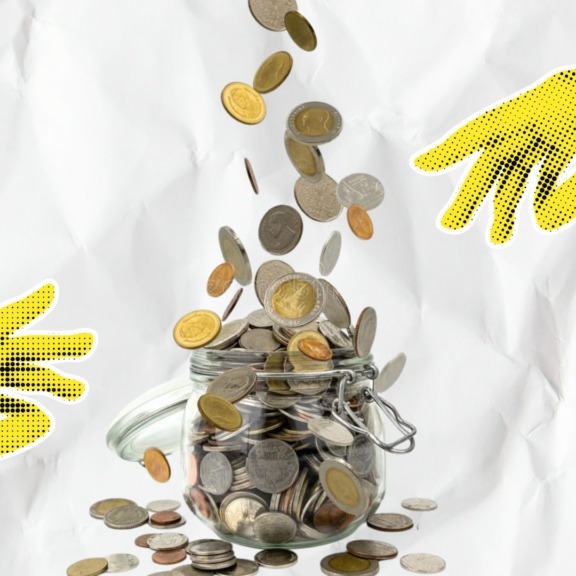
Is sharing actually caring?
Gen Z are merging finances and friends
Forget friendship bracelets — nothing says “besties” like a shared bank account.
That’s right, Gen Z is taking their relationships to the bank. Several TikTokers have gone viral for sharing their experience of opening joint bank accounts to save for trips, nights out and whatever else friendship throws their way, according to NBC News.
TikTok user Kim Brindell posted a TikTok that racked up 5.4 million views, saying she and her friends have been doing this for years.
“All six of us put in $20 a week, and go on a holiday every single year,” says Brindell.
Nothing could go wrong, right?
Because manifesting the group trip isn’t working anymore
Sure, this could spiral into chaos a hundred different ways — but for now, let’s ignore the obvious problems and consider why it might actually be a good idea. Whether you’re saving for a trip, concert tickets or matching tattoos, a joint account can help keep that goal in focus and funded.
Take my two best friends and me, we’ve been “planning” a group trip to Paris since the eighth grade, but ever since we graduated high school, it’s been nothing but talk. A joint account, specifically for a bestie trip, might actually give the push to finally make it happen.
Plus, there will be no more awkwardly chasing down people for money. Group dinners, shared expenses — it’ll all come from one account, no more back-and-forth trying to figure out who owes what.
Friends who save together, stay together — at least until the account hits zero.
Be ready to risk it all
A joint bank account can be a sign of total trust between friends, but that blind trust is a big risk in shared finances. Everyone would have access to it, which means anyone can withdraw money at any time, no permission or discussion needed.
All it takes is one person’s life going off-track, a sudden change of heart, or even a simple misunderstanding of your friendship and finances, and your money takes a hit.
Not to mention, account holders share responsibility for everything: overdrafts, fees and even suspicious activity. If the account is overdrawn or flagged for fraud, everyone is on the hook.
So if one person messes up or has poor credit habits, it could impact your entire banking reputation.
Unless you’d trust this person with your rent, your tuition and your financial future, maybe think twice.
Let me say more about how bad of an idea this is
Here’s a speed run of more reasons why you should think again before getting a shared account with your friends:
1. It could build resentment: If one person consistently deposits more money, they might start feeling like the other is freeloading. Even if contributions start equally, income and effort levels can change.
2. Spending boundaries can get messy: Two people can have wildly different ideas of what expenses should be shared. One person could view it as money for hotels and flights, while someone else may want to use it on late-night food runs.
3. Breaking up a joint account is almost too easy: That is, only one owner of the joint account needs to be present to close the account. So if things go south, one of you could end up with an account balance of zero.
If you’re really doing this, set some boundaries
Okay, so this person is your ride-or-die, and you’re choosing to ignore every warning I’m giving you. Cool. But before opening a joint account, do yourself a favour and be upfront about expectations.
I’d suggest having an honest conversation, but more importantly, putting it all down in writing.
Communication is key in any relationship. Decide how much each person is contributing, and specify terms. Make it easy if someone wants out.
Think of it as a friendship prenup, minus the expensive lawyers and awkward family dinners.
Also, I’d keep it temporary. Treat it like a pop-up shop; once the goal is met, close the account. Don’t let it drag on forever.
What you can do instead
My advice is to save your money in separate accounts from your friends. When it’s time to use the money you’ve set aside for the occasion, you end with the same results, but with none of the risks.
Because nothing tests friendships faster than money, and nothing saves them faster than keeping your bank accounts to yourselves.






